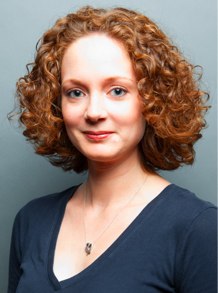The back office is an unglamorous but crucial part of any venture firm. At Y Combinator, which has grown its seed-stage fund and incubator quickly in recent years, it also has to move at the pace of a young startup.
The person who has made that happen is Kirsty Nathoo, a UK transplant with an accounting background. She joined a few years ago and has shepherded hundreds of companies from entry through incorporation, fundraising, and now even product development.
“Y Combinator would cease to operate if Kirsty wasn’t around,” said Y Combinator partner Harj Taggar.
“She’s the story behind Y Combinator,” said one YC founder, who us maintaining anonymity because his company is in stealth mode. “If you scratch the surface and see how YC works, Kirsty is critical to startups, and most YC companies are more likely to spend time with her than anyone else.”
As CFO of the incubator, she holds the keys to the kingdom – literally. Not only does she control and manage Y Combinator’s internal finances, from paying bills to helping organize demo days to actually making sure Y Combinator’s money is wired to startups from the proper accounts; but she helps YC startups coordinate outside financings, tax issues, incorporation and other fiscal matters. She’s the financial brains behind the entire operation, which has funded and incubated 368 startups under Nathoo’s watch. In short, Nathoo’s job could probably be handled by a staff of five.
As Nathoo tells the story of joining Y Combinator, timing was everything.
She first heard of Y Combinator back in 2008 when her husband, Amir Nathoo, was accepted into the Winter ’08 program. Amir ended up graduating and launching mobile development platform Trigger. At the time her husband entered Y Combinator, Nathoo, who studied at Cambridge, was working as an audit manager at accounting giant PricewaterhouseCoopers in England. At PwC, she helped look after company bookkeeping.
As soon as she visited San Francisco when Amir started Y Combinator, she fell in love with the city. Y Combinator also became a family of sorts, as her husband was immersed in the program. For the year following Amir’s program, Nathoo split time between the UK and the U.S. working for PwC until Y Combinator founders Paul Graham and Jessica Livingston approached Nathoo to help them with operations and accounting. In early 2010, Nathoo officially joined the incubator as its in-house accountant.
The Winter 2010 class was Nathoo’s first batch of startups, with the total number of companies incubated at 26 startups. That number has almost quadrupled in two years, Nathoo notes, with the Summer 2012 class graduating a whopping 85 startups (all under Nathoo’s watch).
“I was shocked at the amount of trust that was being placed on me at first”
She began looking after Y Combinator’s own bookkeeping efforts, organizing the money that Sequoia had invested in the organization, as well as keeping this separate from the original money that Graham, Livingston, Trevor Blackwell and Robert Morris put in the company back at its founding. It’s actually a complicated task. In March 2009, Sequoia invested $2 million in funding, which was kept in one account. In 2010, Sequoia, along with other angel investors, put $8.25 million into Y Combinator. This also had to be kept separate, and Nathoo has to report into Sequoia on the amounts invested, as well as the returns (if any).
“I was shocked at the amount of trust that was being placed on me at first,” Nathoo says.
She also started helping organize demo days, which are the presentations the startups make to investors and the press at the end of the program. She also began working with startups and founders, the part of her job which she truly enjoys the most, she says.
Taggar says that Y Combinator wants companies to do nothing during their program but write code and develop their ideas. “Kirsty is the person who let’s that happen. Founders don’t have to spend the mental energy on logistics and can focus on the things they want to focus on,” he adds.
There’s not a lot that Nathoo doesn’t do when it comes to helping Y Combinator entrepreneurs enter the program and navigate finances, both for the company and personally. Nathoo will coordinate with admitted entrepreneurs to ensure that they get their money when they start the program, and help them understand the terms of the agreements. Y Combinator puts in $11,000 plus $3,000 per founder (up to a maximum of 3 founders) in exchange for around 7 percent of equity. Nathoo ensures this money is wired to the proper bank accounts, which is a complicated task when you are dealing with 30, 40 or even 80 startups (and more founders).
Nathoo recalls a recent situation with an overseas founder who had flown to the country to attend Y Combinator with no U.S. bank account and no way to make payments. He didn’t even have access to money with which he could pay rent. So Nathoo met him at the San Francisco International Airport on his arrival with a wad of cash to take to a new landlord so the founder would have a place to sleep that night.
Another role Nathoo takes on with founders and startups is an accounting advisor. She’ll ensure that every company incorporates in the state of Delaware, and if they haven’t done this, she’ll help with that process. Y Combinator and most investors will only invest in companies that have been in incorporated in Delaware, and many founders don’t know this. Nathoo says that of the current class of 47 startups at Y Combinator, only one company’s incorporation documents were problem-free when joining the program. She also helps them open bank accounts and keep track of receipts and finances to be mindful of tax consequences. Most of the founders have never raised funding so don’t understand what a convertible note is or how a cap table works.
Jospeh Walla, CEO and founder of YC 2011 graduate and electronic signature startup HelloSign, recalls Nathoo’s help on 83(b) election forms. Whenever you issue stock, it’s important to report this via a 83(b) form to the IRS. Many startup founders don’t know this, however; and Nathoo helped Walla and a number of his classmates with this process.
“It’s interesting that she keeps a low profile, because she’s a significant part of Y Combinator. She has a lot of pattern recognition when it comes to financing and accounting. I can’t think of anyone in the Valley that has that level of experience,” he says. “She makes sure we become a real company rather than a group of people with different ideas.”
“She makes sure we become a real company rather than a group of people with different ideas”
As Nathoo became more entrenched in the day-to-day operations of Y Combinator, it made more sense for her to take on responsibilities like handling and helping with financings. Last year, she was promoted to CFO. Nathoo says that she has developed a systematic way to organize incorporation documents and financing term sheets from Y Combinator.
Because she’s helped form hundreds of these funding documents from both Y Combinator and outside investors, Nathoo also has a pattern recognition into what terms specific investors will back down on, or negotiate. While she didn’t name names, she said that she’s started to see patterns of what certain investors want or don’t want and will advise startups accordingly.
 Additionally, Nathoo was also helping with the financial logistics of the Start Fund, which gave each Y Combinator company $150,000 in investment from Yuri Milner, Andreessen Horowitz and General Catalyst. Y Combinator recently replaced this with YC VC, which includes Milner, Andreessen Horowitz, General Catalyst and Maverick Capital. Instead of $150,000, YC VC puts $80,000 into each startup.
Additionally, Nathoo was also helping with the financial logistics of the Start Fund, which gave each Y Combinator company $150,000 in investment from Yuri Milner, Andreessen Horowitz and General Catalyst. Y Combinator recently replaced this with YC VC, which includes Milner, Andreessen Horowitz, General Catalyst and Maverick Capital. Instead of $150,000, YC VC puts $80,000 into each startup.
Needless to say, with all these different sources of money coming into Y Combinator startups, Nathoo is a master at Excel spreadsheets.
Beyond managing financials, Nathoo has taken on the role of operations manager as well as mediator/den mother to Y Combinator startups. She invites VCs and angel investors to demo day, and ensures each investor is vetted. With the rate of successful startups coming out of Y Combinator, investors are clamoring to attend demo days, and Nathoo ensures that each investor attending is vetted, and are the right fit for startups. That means some potential investors could be left out. There have been situations, says Nathoo, where some investors try to bring their friends to demo day that have not been vetted, and she has had to ask people to leave. There have been a few investor tantrums, she adds.
Some of Nathoo’s financial advice also gets personal. Many founders will come to her with personal tax and finance questions. And startups who have graduated Y Combinator continue to email Nathoo with tax inquiries and issues. Unfortunately, Nathoo also serves as mediator when things don’t go well between founders at Y Combinator, which does happen in each class. “I try not to take sides, but I am there to pick up the pieces,” she says. “I also advise them to establish rules and contracts at the beginning of their time at Y Combinator that establishes equity breakdowns and splits if one founder leaves.”
Another characteristic that makes Kirsty so unique is her efficiency in what are normally very complicated matters. For example, she helped architect a way for funds to be automatically transferred into bank accounts of founders as soon as the original Y Combinator funding documents are filed. Previously, this was a manual process, and Nathoo would be making 60 or more wire transfers herself for each class. Now this task has been automated.
The Future
Nathoo tells us that the last of the Sequoia money was used in the Summer 2012 class. Now Y Combinator is completely self funded through the money the incubator has made through its investments in startups (i.e. exits). Will Y Combinator continue to operate without any funding? Nathoo says she’s not sure how far it will go, but the organization is in a good place, financially.
Y Combinator has also recently bought a new building in Mountain View where the incubator will move into, as it has outgrown its current Mountain View headquarters. Nathoo will be managing the financials and operations around this as well.
Looking forward, she’s also working with founders on product strategy, which she says is her next big challenge. She’s also been part of the interview process for startups applying to be in the program.
“Y Combinator’s biggest challenge right now is scaling and figuring out how to do that,” she explains. We’re trying to figure out how to help more and more companies be successful, and there are many threads to that answer. Part of this is systematizing things that can be systemized, like finance.”
For Nathoo, Y Combinator is more than just a job, it is a family. “This is my dream job. I tell so many people I have the best job in the world.”
